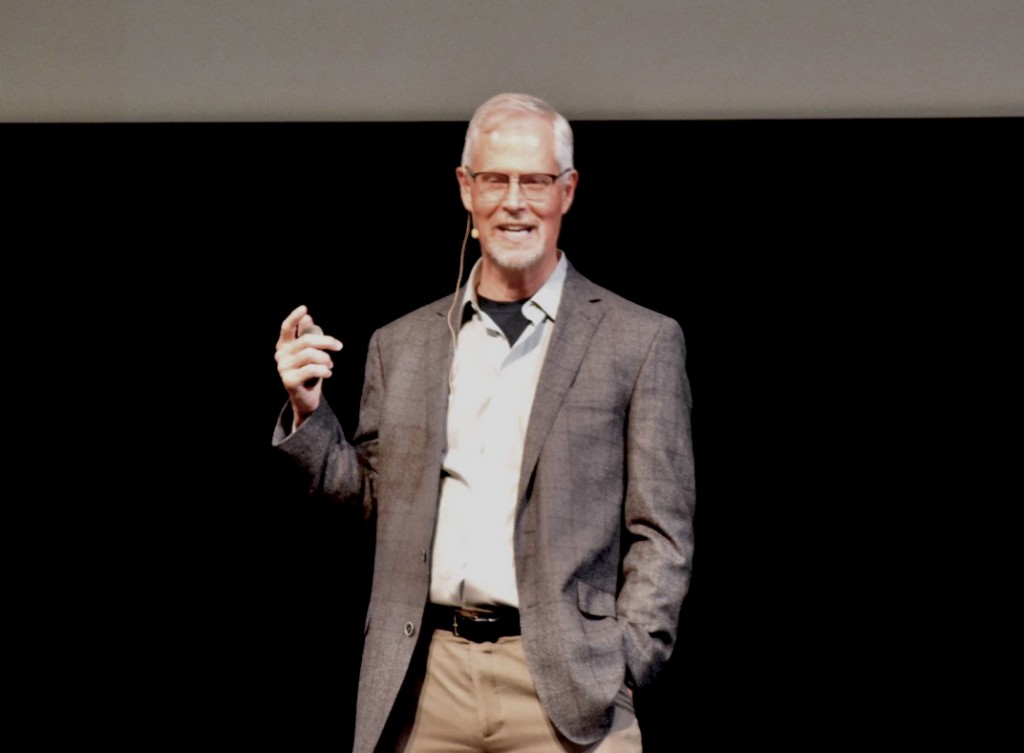
Photo by Kaitlin Balasaygun
Harvard clinical psychologist, Dr. Chris Germer, visited Ramapo on Monday to talk about his research on the beneficial effects of practicing self-compassion.
Germer began by explaining how he became invested in this practice when he began suffering from public speaking anxiety and shame disorder. At the start, this diagnosis caused quite an issue, as his job revolves around giving speeches in front of large audiences.
After trying various methods and activities to reduce the negative emotions he was experiencing, Germer found that kindness meditation was the most effective method.
This involved Germer closing his eyes and repeating affirmations to himself, such as “may I be safe” and “may I be healthy.” Weeks later, Germer found himself handling his anxiety much better and attributed it to his newfound self-compassion.
Germer was curious as to why this concept of self-compassion is not a more widely practiced ritual given how successful it had been for him. He went on to conduct research wherein he discovered that when things go wrong, about 80 percent of people react in a negative way towards themselves, while only 6 percent react kindly and compassionately towards themselves (the remaining 16 percent were undecided).
Shocked by this data, Germer went on to identify five myths that lead to a lack of self compassion. He explained these as believing self-compassion is equal to self-pity, weakness, selfishness, self-indulgence and lack of motivation.
After debunking these myths through research, Germer went on to describe how people can learn self-compassion through a wide variety of techniques. This can be accomplished in many ways, whether it be going to therapy, doing yoga or even adopting a dog. Through consistently planting self-love, the brain becomes unable to tell the difference between you being kind to yourself versus someone else being kind to you.
The Krame Center finds these practices especially important for college students as anxiety rates among youth have raised.
While making his closing remarks, Germer asked audience members to close their eyes and imagine seeing a loved one struggling. He explained how one’s immediate instinct is to try to help and empathize. This is due to the notion that we naturally care about others and respond differently to when they are experiencing troubles than when we ourselves are.
Germersaid he believes that in order to fully attain the ideology of self-compassion, we need to start responding to ourselves with the same amount of kindness that we would towards others.
This event is just one of many that the Krame Center hosts to support student wellness and self-care. Throughout the year, they participate in events with the Wellness Coalition, who aim to support the same message of self-compassion that Germer discussed.
kaitlinbalasaygun@gmail.com





